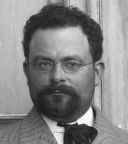
The Jewish Theological Seminary (JTS) is a Conservative Jewish education organization in New York City, New York. It is one of the academic and spiritual centers of Conservative Judaism and a center for academic scholarship in Jewish studies. The Jewish Theological Seminary Library is one of the most significant collections of Judaica in the world.

The Hebrew Union College – Jewish Institute of Religion is a Jewish seminary with three locations in the United States and one location in Jerusalem. It is the oldest extant Jewish seminary in the Americas and the main seminary for training rabbis, cantors, educators and communal workers in Reform Judaism. HUC-JIR has campuses in Cincinnati, Ohio, New York City, Los Angeles, and Jerusalem. The Jerusalem campus is the only seminary in Israel for training Reform Jewish clergy.
"Hava Nagila" is a Jewish folk song. It is traditionally sung at celebrations, such as weddings, Bar/Bat Mitzvas, and other festivities among the Jewish community. Written in 1918, it quickly spread through the Jewish diaspora.

Abraham Zevi Idelsohn was a prominent Jewish ethnomusicologist and composer, who conducted several comprehensive studies of Jewish music around the world.
Mordechai Werdyger is an American Israeli Chasidic Jewish singer and songwriter who is popular in the Orthodox Jewish community. He is the son of cantor David Werdyger and uses the stage name Mordechai Ben David or its initials, MBD. He is known as the "King of Jewish Music" and has released over 40 albums while performing internationally. He has headlined at charity concerts—including those of the HASC and Ohel. On February 27, 2022, he was inducted with the inaugural class of the Jewish Music Hall of Fame.

Don Tourliev "Danny" Maseng is an Israeli-born performer. An actor, singer and writer, Maseng is known as a composer of contemporary Jewish Liturgical music. He currently leads MAKOM LA, a spiritual community in Los Angeles, California.

Velvel Pasternak was a musicologist, conductor, arranger, producer, and publisher specializing in Jewish music. In 1981, the New York Times described him as "an expert on the music of the Hasidic sect and probably the largest publisher of Jewish music anywhere, although he was quick to note that publishing Jewish music is a business that attracts few rivals."

Naftali Herstik was a Hungarian-born Israeli chazzan (cantor) and teacher. He was born in Salgótarján, Hungary and came with his family to Israel at the age of three. Descended from a long line of cantors and Rabbis, he was recognized as a cantorial prodigy from his early childhood, singing as a teen in concerts with Cantor Moshe Koussevitzky.

Gad Elbaz is an Israeli Jewish singer who has gained international success and recorded several albums.

Baruch "Burry" Chait is an Orthodox Jewish rabbi, musician and composer. He is rosh yeshiva of the Israeli high school Maarava Machon Rubin in Matityahu.
For the purposes of this article, “contemporary” refers to the period from 1967 to the present day, “Jewish” refers to the various streams and traits of Judaism practiced. Many Orthodox Jews use the term “religious” to refer to a strict adherence to Jewish law. For the purposes of this article, “religious” refers to the content and context of the music itself: liturgical or implicit references to the divine.
Benzion Miller is a cantor, schochet and mohel (circumciser), as was his father, Aaron Daniel Miller. He was born in a displaced persons camp in Fernwald, Germany.
Louis Harry Danto was a lyric tenor and cantor. He was acclaimed for his cantorial music, concert appearances and recordings of Italian, Russian, and French opera repertoire. Danto performed throughout North America, Europe and Israel, and recorded 24 solo albums.

Yaakov ("Yanky") Lemmer is an American Chazzan and performing artist. Lemmer performs traditional Hebrew liturgy, Yiddish folk, opera, Broadway, Israeli, and Hasidic music.
Oded David "Dedi" Graucher, known professionally as Dedi, was an Israeli Orthodox Jewish singer.

Benzion Hakohen "Benny" Friedman is an American Hasidic Jewish singer and a non-pulpit rabbi. Professionally trained in voice, he rose to prominence on the Orthodox pop scene with his first album in 2009. Singing mainly in Hebrew, Friedman tours extensively and also appears in music videos. He views his music as a shlichus (outreach) tool, with the goal of drawing Jews closer to Judaism.
Ari Goldwag is an American Orthodox Jewish singer, songwriter, composer, and producer of contemporary Jewish religious music, as well as an author and teacher living in Ramat Beit Shemesh, Israel. He was a soloist for the Miami Boys Choir at age 10 and starred on five albums and three videos before his voice changed at age 14. He launched a music career after his marriage and move to Israel. He has released nine solo albums, and composes songs and produces albums for other artists.
Shmuel Shapiro (Hebrew: שמואל שפירו, a French Jewish rabbi, hazzan, singer, composer, lecturer, and former Chief Rabbi of Meurthe-et-Moselle and Nancy, France, was born in Aix-les-Bains, France, on 26 January 1974.

Chaim Shaul Abud was an Israeli poet, rabbi, educator, and philanthropist. Abud was the author of the book "Shirayi Zimra Ha-Shalem", which combines the poetry of Baqashot form the Jewish community of Aleppo and songs that he wrote himself. He also served as founder and director of several Torah schools in Jerusalem.
Moshe Many (1928-2015) was an Israeli urologist who was President of Tel Aviv University from 1983 to 1991, and President of Ashkelon Academic College from 2002 to 2012.











